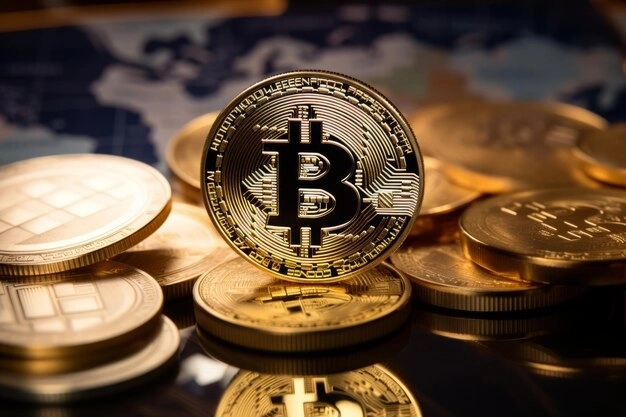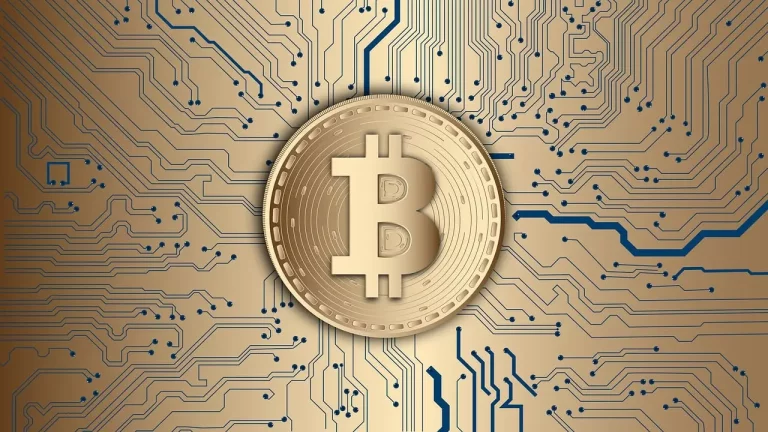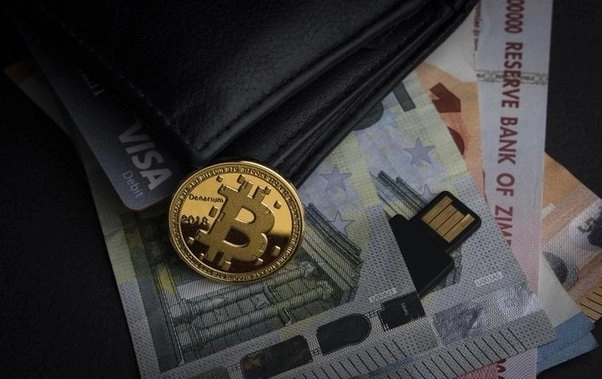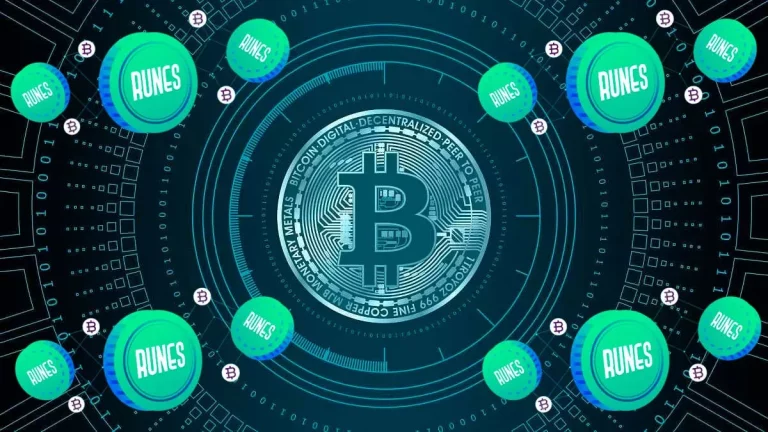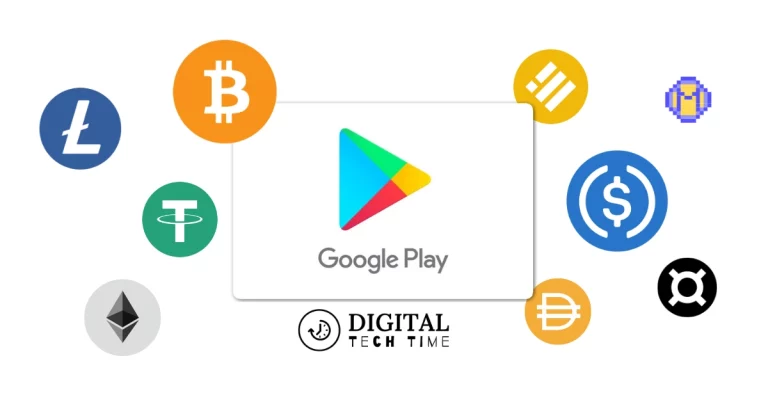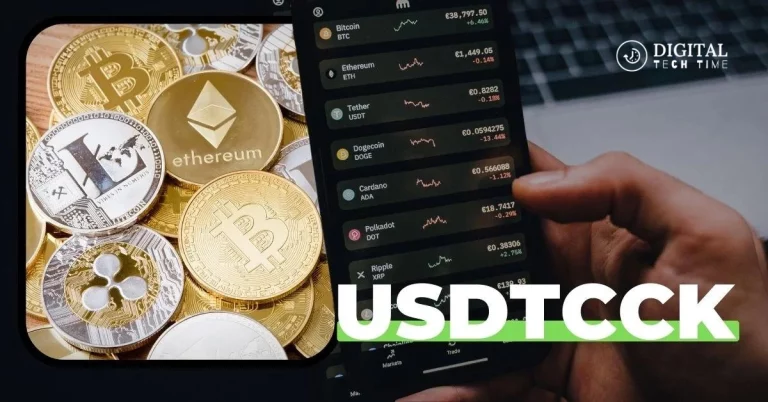Exploring the Synergy: Bitcoin’s Impact on the Global Gaming Industry
The global gaming industry has experienced significant growth, while Bitcoin, a decentralized digital currency, has revolutionized the financial sector. This article explores the impact of Bitcoin on the gaming industry, exploring its synergies with technology and entertainment. It explores the benefits, challenges, and prospects of Bitcoin’s integration into the gaming industry, shaping the future of entertainment and finance.
Table of Contents
The Rise of Bitcoin in the Gaming Industry
Bitcoin, a decentralized digital currency, gained popularity in the gaming industry, transforming in-game economies and virtual transactions. Initially used for online gambling, it became integrated into game platforms, allowing players to purchase virtual goods, in-game currencies, and entire games. This provided a secure transaction experience and opened new revenue streams for gaming companies.
Benefits of Using Bitcoin in the Gaming Industry
Integrating Bitcoin into the gaming industry has brought numerous benefits for players and game developers. Here are some of the key advantages:
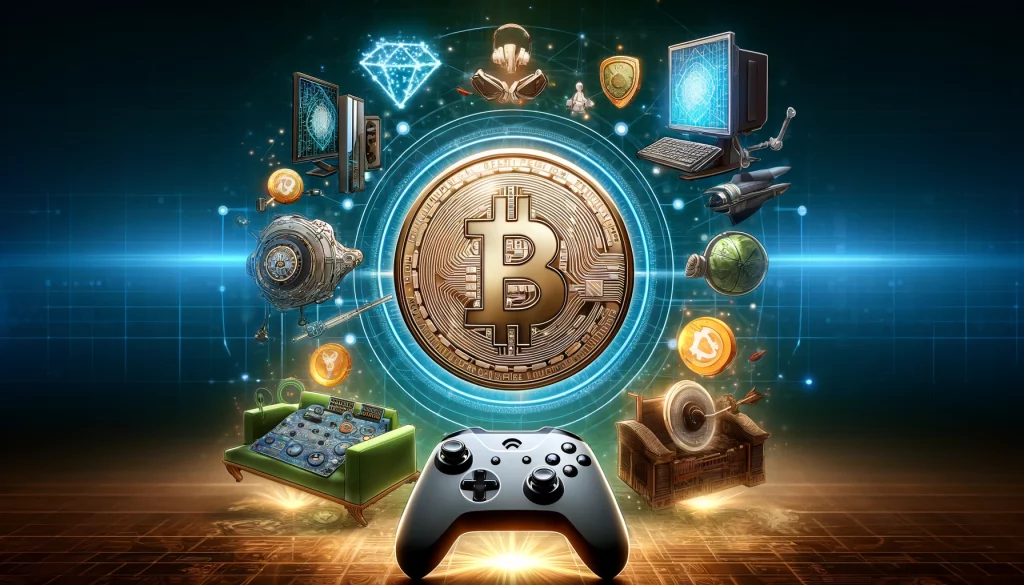
- Secure and transparent transactions: Bitcoin transactions are secured by advanced cryptographic algorithms, ensuring the integrity and transparency of each transaction. This level of security is particularly crucial in the gaming industry, where virtual assets and in-game currencies hold significant value.
- Lower transaction fees: Traditional payment methods often involve high transaction fees, which can eat into gaming companies’ profits and increase players’ costs. On the other hand, Bitcoin transactions typically have lower payments, making it a more cost-effective option for both parties.
- Global accessibility: Bitcoin operates on a decentralized network, transcending geographical boundaries and providing global accessibility. This feature is particularly beneficial for the gaming industry, which caters to a global audience. It enables players from different regions to seamlessly participate in virtual economies and make purchases.
- Pseudonymity: Bitcoin transactions are conducted using pseudonymous addresses, protecting users’ identities while maintaining transparency. This aspect appeals to players who value privacy and anonymity, especially in online gaming.
- Micropayments: Bitcoin’s divisibility allows for seamless microtransactions, enabling players to make small purchases within games without the limitations and fees associated with traditional payment methods.
Challenges and Risks Associated with Bitcoin in Gaming
While the integration of Bitcoin in the gaming industry presents numerous opportunities, it is essential to acknowledge and address the challenges and risks associated with this technology:
- Volatility: Bitcoin’s value is subject to significant price fluctuations, posing risks for players and gaming companies. Sudden changes in Bitcoin’s value could impact the perceived value of in-game assets and currencies, potentially causing disruptions in virtual economies.
- Regulatory uncertainty: In many jurisdictions, the regulatory landscape surrounding cryptocurrencies, including Bitcoin, remains uncertain. Gaming companies must navigate complex legal and regulatory frameworks to ensure compliance and mitigate potential risks.
- Adoption and user experience: While Bitcoin has gained significant traction, its adoption among mainstream gaming audiences may still face challenges. Ensuring a seamless user experience and educating players about the benefits and usage of Bitcoin will be crucial for widespread adoption in the gaming industry.
- Security risks: Despite the inherent security features of the Bitcoin network, cybersecurity threats such as hacking, phishing, and theft of private keys remain a concern. Gaming companies must implement robust security measures to protect player assets and transactions.
- Scalability and transaction speed: As the demand for Bitcoin transactions increases, scalability and transaction speed may become bottlenecks. The gaming industry requires fast and efficient transactions to ensure a seamless gaming experience, and addressing these challenges will be crucial for widespread adoption.
The Adoption of Bitcoin by Major Gaming Companies
As the potential of Bitcoin in the gaming industry became more evident, several major gaming companies have embraced this technology, recognizing its benefits and the growing demand from players. Here are some notable examples of Bitcoin adoption in the gaming industry:
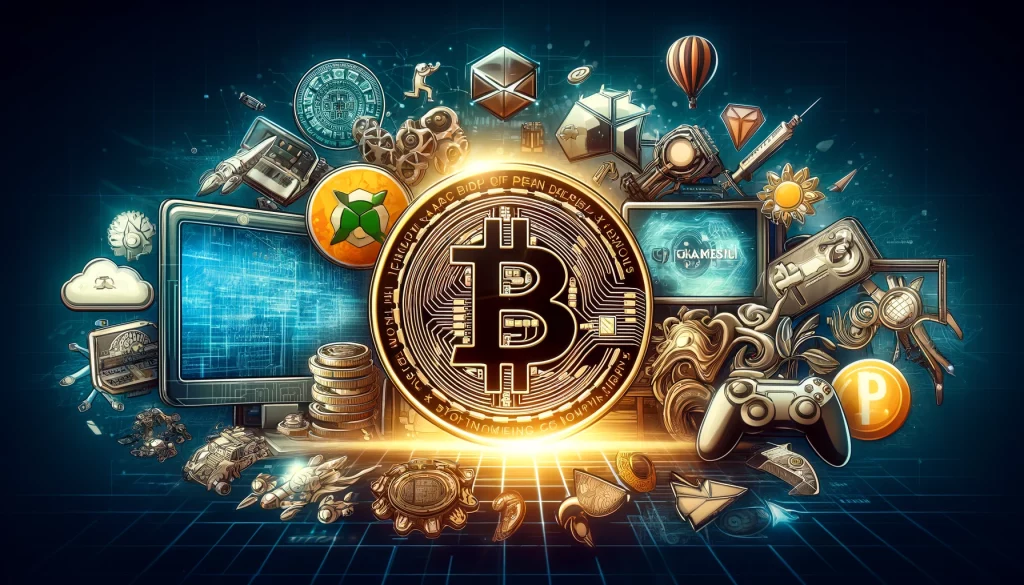
- Microsoft: In 2014, Microsoft became one of the first major companies to accept Bitcoin as a payment method for its digital products, including games and apps on the Xbox and Windows platforms.
- Steam: The popular gaming platform Steam, owned by Valve Corporation, started accepting Bitcoin payments in 2016, allowing gamers to purchase games and in-game content using the cryptocurrency.
- Unikrn: Unikrn, a leading esports betting platform, fully embraced Bitcoin and other cryptocurrencies, providing a secure and transparent environment for gamers to engage in esports betting.
- Atari: The iconic gaming company Atari announced plans to launch its cryptocurrency, the Atari Token, in 2020, aiming to create a decentralized digital entertainment platform that leverages blockchain technology.
- Enjin: Enjin, a blockchain-based gaming platform, has developed tools and services that enable game developers to integrate cryptocurrencies and non-fungible tokens (NFTs) into their games, creating new opportunities for in-game economies and virtual asset ownership.
These examples demonstrate the growing interest in and adoption of Bitcoin within the gaming industry as companies recognize its potential benefits and strive to meet their players’ evolving demands.
The Impact of Bitcoin on In-Game Purchases and Virtual Economies
One of the most significant impacts of Bitcoin’s integration into the gaming industry has been its influence on in-game purchases and virtual economies. Traditional payment methods often involve intermediaries and complex processes, resulting in higher transaction fees and potential delays. With its decentralized nature and peer-to-peer transactions, Bitcoin offers a more streamlined and cost-effective solution.

- Direct in-game purchases: Players can now purchase virtual goods, in-game currencies, and other digital assets using Bitcoin without intermediaries. This direct transaction model reduces costs and enhances the overall user experience by providing a seamless and secure payment process.
- Virtual economies and asset ownership: Integrating Bitcoin and blockchain technology has created truly decentralized virtual economies within games. Players can own and trade unique digital assets, such as non-fungible tokens (NFTs), representing in-game items, characters, or virtual real estate. This concept of actual digital ownership can potentially revolutionize how players interact with and value virtual assets.
- Micropayments and microtransactions: Bitcoin’s divisibility and low transaction fees make it an ideal solution for facilitating micropayments and microtransactions within games. Players can make small purchases or engage in micro-economies without the limitations and costs associated with traditional payment methods.
- Cross-game asset transfer: With the integration of blockchain technology, the potential for transferring virtual assets across different games becomes a reality. Players could trade or transfer their in-game assets between compatible games, creating a more interconnected and dynamic virtual economy.
As the adoption of Bitcoin and blockchain technology continues to grow, we can expect further innovations and transformations in how virtual economies and in-game purchases are handled within the gaming industry.
Regulatory Considerations for Bitcoin in the Gaming Industry
While integrating Bitcoin into the gaming industry presents exciting opportunities, addressing the regulatory considerations accompanying this innovative technology is crucial. Governments and regulatory bodies worldwide are grappling with the challenges of regulating cryptocurrencies, including Bitcoin, and their applications in various industries.

- Anti-money laundering (AML) and know-your-customer (KYC) regulations: Gaming companies that accept Bitcoin as a payment method must comply with AML and KYC regulations to prevent illegal activities such as money laundering and terrorist financing. This may involve implementing robust identity verification processes and transaction monitoring systems.
- Tax implications: The taxation of Bitcoin transactions and virtual asset ownership is an ongoing debate and area of regulatory uncertainty. Gaming companies and players must stay informed about the tax implications in their respective jurisdictions and ensure compliance with applicable laws and regulations.
- Consumer protection: Regulatory bodies may introduce measures to protect consumers, particularly minors, from potential risks associated with cryptocurrency transactions and virtual asset ownership within the gaming industry.
- Data privacy and security: The gaming industry handles sensitive player data and virtual asset information, so it is essential to comply with data privacy and security regulations, such as the General Data Protection Regulation (GDPR) in the European Union.
- Cross-border transactions: The global nature of the gaming industry and the decentralized nature of Bitcoin transactions may raise regulatory challenges related to cross-border transactions and compliance with different jurisdictions.
Navigating the regulatory landscape surrounding Bitcoin and virtual asset ownership in the gaming industry will require close collaboration between gaming companies, regulatory bodies, and industry associations. Proactive engagement and compliance with evolving regulations will be crucial for the successful and sustainable integration of Bitcoin in the global gaming industry.
Related Post: Can You Buy Crypto with Google Play Credit
The Future of Bitcoin in the Global Gaming Industry
As the adoption of Bitcoin and blockchain technology continues to gain momentum, the future of their integration into the global gaming industry holds immense potential. Here are some potential developments and trends that we can expect to witness:
- Decentralized gaming platforms: The rise of decentralized gaming platforms built on blockchain technology could revolutionize the gaming industry. These platforms would enable actual ownership of in-game assets, peer-to-peer transactions, and transparent virtual economies, creating a more equitable and player-centric gaming ecosystem.
- Gamification of blockchain technology: The gaming industry has a unique opportunity to leverage its expertise in creating engaging and immersive experiences to gamify blockchain technology. This could lead to developing educational and entertaining games that introduce the concepts of cryptocurrencies and blockchain to a broader audience.
- Metaverse integration: As the metaverse concept (a virtual shared space) gains traction, integrating Bitcoin and other cryptocurrencies could facilitate transactions and enable virtual economies within these immersive digital worlds.
- Esports and competitive gaming: The esports industry has seen tremendous growth in recent years, and the integration of Bitcoin could provide a secure and transparent platform for esports betting, prize pools, and player compensation.
- Interoperable virtual economies: As more gaming platforms adopt Bitcoin and blockchain technology, we may witness the emergence of interoperable virtual economies, where players can seamlessly transfer and trade virtual assets across different games and platforms.
While the future holds exciting possibilities, the gaming industry must address the challenges and risks associated with Bitcoin adoption, such as scalability, regulatory compliance, and user education. Collaboration between gaming companies, blockchain developers, and regulatory bodies will be crucial in shaping the future of this innovative integration.
Case Studies: Successful Implementation of Bitcoin in Gaming
To better understand the practical applications and benefits of Bitcoin in the gaming industry, let’s explore some notable case studies where its implementation has proven successful:
- Enjin: Enjin, a leading blockchain-based gaming platform, has successfully integrated Bitcoin and other cryptocurrencies into its ecosystem. Game developers can create and manage in-game assets as non-fungible tokens (NFTs), enabling actual digital ownership and seamless trading. Enjin has partnered with numerous game studios, allowing them to integrate blockchain technology and cryptocurrencies into their games.
- Unikrn: As mentioned earlier, Unikrn is a pioneering esports betting platform that fully embraced Bitcoin and other cryptocurrencies. By leveraging the transparency and security of blockchain technology, Unikrn has created a trustworthy and secure environment for gamers to engage in esports betting. The platform has gained significant traction, attracting a large user base and partnerships with major esports organizations.
- Satoshi’s Games: Satoshi’s Games is a blockchain-based gaming platform that allows developers to create and distribute games that integrate Bitcoin and other cryptocurrencies. The platform provides tools and services to facilitate in-game transactions, virtual asset ownership, and secure payment processing. Satoshi’s Games has successfully onboarded several game developers, enabling them to create innovative gaming experiences powered by blockchain technology.
- Bitcasino.io: Bitcasino.io is an online casino platform that exclusively accepts Bitcoin and other cryptocurrencies as payment methods. By leveraging the benefits of Bitcoin, such as fast and secure transactions, Bitcasino.io has created a seamless and transparent gaming experience for its users. The platform has gained a strong reputation in the online gambling industry for its innovative approach and commitment to security.
These case studies demonstrate the successful implementation of Bitcoin in various aspects of the gaming industry, ranging from in-game asset ownership and trading to esports betting and online gambling. As more gaming companies recognize the potential of this technology, we expect to see an increasing number of innovative use cases and successful implementations in the future.
Conclusion
Bitcoin’s integration into the gaming industry has revolutionized virtual economies, in-game purchases, and digital asset ownership. It offers secure transactions, lower fees, global accessibility, pseudonymity, and micropayments. Major gaming companies like Microsoft, Steam, Unikrn, Atari, and Enjin have adopted Bitcoin, solidifying its position in the industry. However, challenges like volatility, regulatory uncertainty, adoption hurdles, security risks, and scalability concerns remain. The gaming industry’s future presents opportunities for decentralized gaming platforms, gamification of blockchain technology, metaverse integration, esports, and interoperable virtual economies. Successful implementation of Bitcoin in gaming platforms like Enjin, Unikrn, Satoshi’s Games, and Bitcasino.io demonstrates its potential and feasibility.

